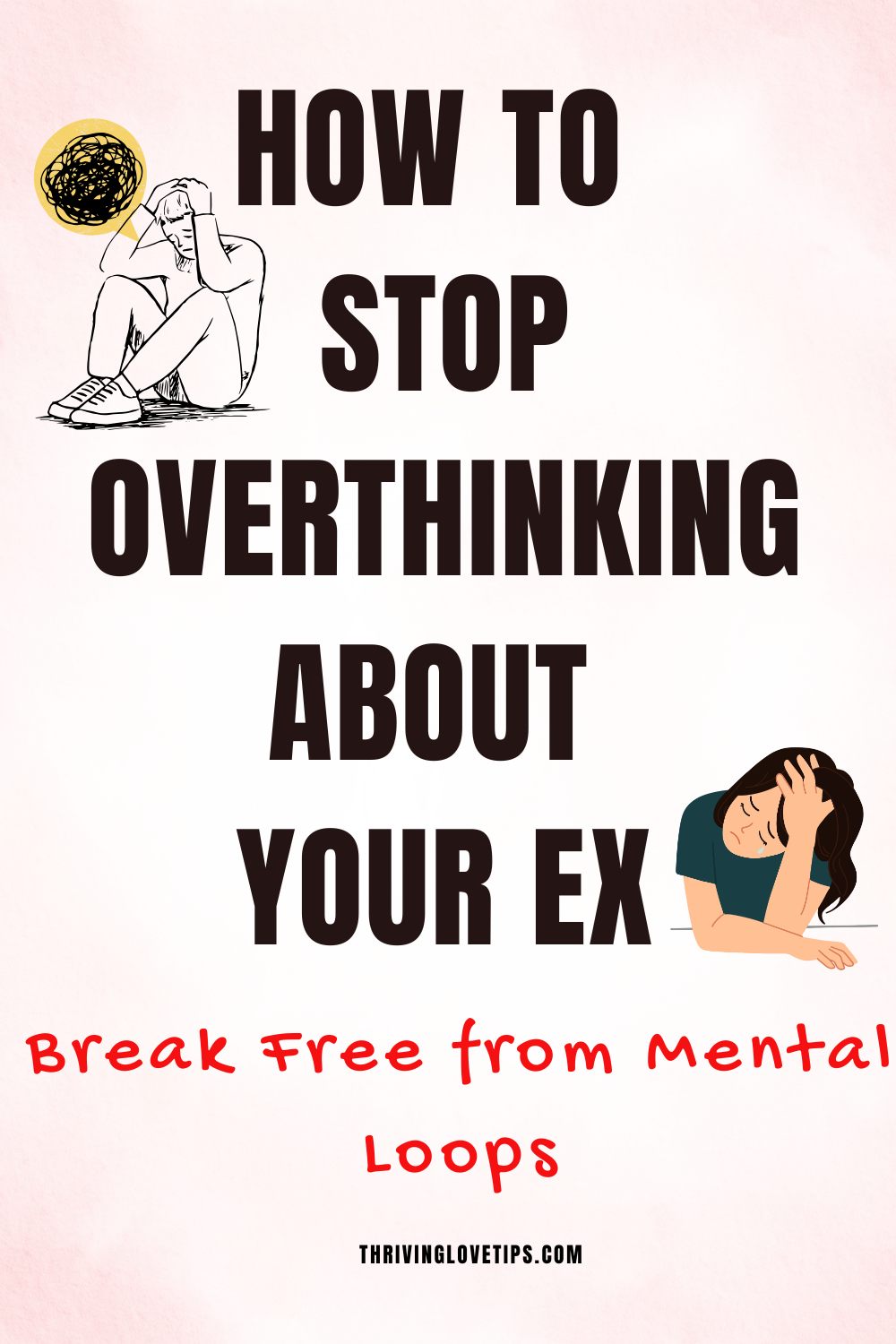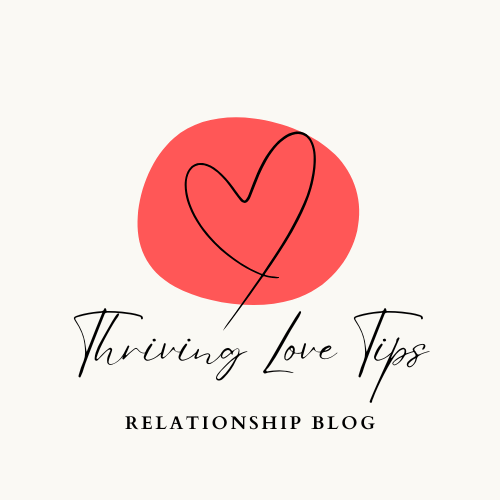It’s 2 AM, and you’re lying in bed replaying the same conversations for the hundredth time. What if you had said something different? What if you hadn’t made that one mistake? Maybe if you’d just been better, funnier, more understanding, they’d still be here. You scroll through old photos, analyze their social media for hidden meanings, and construct elaborate scenarios where you get back together. Your brain has become a highlight reel of your relationship, except it’s stuck on repeat, and you can’t find the off button.
Overthinking about an ex is one of the most exhausting forms of mental torture we inflict on ourselves. It keeps you trapped in the past, unable to move forward or find peace. Every thought feels urgent and important, as if you just think about it enough, you’ll finally understand what went wrong or figure out how to fix it. But here’s the truth: overthinking doesn’t bring clarity. It doesn’t change the past. And it definitely doesn’t help you heal. It just keeps you stuck in a loop of pain, analyzing a relationship that’s already over.
The good news is that you’re not powerless against these obsessive thoughts. While you can’t control whether thoughts about your ex pop into your head, you absolutely can control what you do with them. Breaking free from overthinking isn’t about forcing yourself to never think about your ex again. It’s about changing your relationship with these thoughts so they no longer have power over you. Here’s how to finally stop the mental madness and start moving forward.

Understand Why Your Brain Won’t Shut Up
Before you can stop overthinking, it helps to understand why your brain is doing this in the first place. It’s not because you’re weak, obsessive, or incapable of moving on. It’s because your brain is trying to solve a problem, and breakups present your mind with the ultimate unsolved puzzle.
Dr. Guy Winch, psychologist and author, explains that “our brains hate uncertainty and unfinished business. When a relationship ends, especially if it ended suddenly or without full closure, your brain goes into overdrive trying to make sense of it.” Your mind keeps replaying events, analyzing conversations, and looking for answers because it believes that if it just thinks hard enough, it will figure out what went wrong and how to prevent it in the future.
There’s also a neurological component. When you were in the relationship, your brain got regular hits of dopamine and oxytocin from interactions with your ex. Now that those are gone, your brain craves them like an addiction. Thinking about your ex, checking their social media, or fantasizing about getting back together provides a small hit of those same chemicals, which reinforces the behavior even though it’s ultimately harmful.
Understanding this doesn’t make the thoughts stop, but it does help you realize that overthinking isn’t a character flaw. It’s a normal, if painful, response to loss. And like any habit, it can be changed with the right strategies and consistent effort.
Cut Off the Information Supply
One of the biggest obstacles to stopping overthinking is that you keep feeding your brain new information to obsess over. Every time you check your ex’s social media, ask mutual friends about them, or drive past their house, you’re giving your mind fresh material to analyze and ruminate about.
The first and most crucial step is to go completely no contact. Block or unfollow them on all social media platforms. Delete their number or at least remove it from your favorites. Avoid places you know they frequent. Ask mutual friends not to share information about your ex with you. This might feel extreme, but it’s essential. You cannot heal from someone you’re still monitoring.
Therapist Katie Krimer emphasizes that “every piece of information about your ex is like picking at a wound that’s trying to heal. You need to create space for your brain to stop seeing them as a current part of your life and start processing them as part of your past.”
This also means resisting the urge to reach out to them, even when you’re convinced you need closure or have something important to say. Most of the time, these urges are just your brain’s way of getting another hit of connection. Write unsent letters if you need to process your feelings, but don’t actually send them.
Remove physical reminders, too. You don’t have to throw away every photo or gift immediately if that feels too painful, but box them up and put them somewhere you won’t encounter them daily. Clear your space of constant visual reminders that trigger overthinking.
Interrupt the Thought Spirals
When you catch yourself overthinking, you need tools to interrupt the spiral before it takes over your entire day. The key is not to try to suppress the thoughts, which usually backfire, but to acknowledge them and then redirect your attention.
One effective technique is the “thought labeling” method from cognitive behavioral therapy. When you notice yourself overthinking, simply label it: “I’m having thoughts about my ex again.” This creates distance between you and the thoughts, helping you recognize them as mental events rather than facts you need to engage with.
Then actively redirect your attention to something that requires focus. This might be a challenging puzzle, a workout that demands concentration, a creative project, or a conversation with a friend. The goal is to give your brain something else to do besides ruminate. Physical activity is particularly effective because it’s hard to spiral into overthinking when you’re pushing your body.
Dr. Judson Brewer, who studies the neuroscience of habit change, suggests using curiosity as an intervention. “Instead of trying to make the thoughts stop, get curious about them. What does this thought pattern feel like in your body? What triggered it? This curiosity engages a different part of your brain and naturally reduces the compulsive quality of the overthinking.”
You can also use the “5-4-3-2-1” grounding technique when you’re stuck in a thought loop. Name five things you can see, four things you can touch, three things you can hear, two things you can smell, and one thing you can taste. This brings you back to the present moment and out of your head.
Challenge Your Narrative
Overthinking often involves creating and reinforcing a particular story about the relationship and breakup. Maybe you’ve decided it was all your fault, or that your ex was perfect and you’ll never find anyone better, or that if you’d just done one thing differently, you’d still be together. These narratives feel true, but they’re usually distorted by emotion and selective memory.
Start questioning the stories you’re telling yourself. Write them down and then challenge them with evidence. If you’re thinking “I’ll never find someone as good as them,” ask yourself: Is that actually true, or am I just focused on their good qualities and forgetting the problems? If you’re convinced it was all your fault, ask: What role did they play in the relationship’s problems?
Often, overthinking involves romanticizing the relationship and your ex while minimizing the real reasons it ended. Make a list of all the things that weren’t working, the incompatibilities, the red flags you ignored, the ways you compromised yourself. This isn’t about demonizing your ex or the relationship. It’s about seeing the full picture instead of an idealized version that your brain has constructed.
Remember that in most cases, relationships end for good reasons. Your brain might try to convince you that you made a terrible mistake or that you gave up too easily, but trust the version of you who made the decision to end things or to accept the ending. That person had information and perspective that you’re currently lacking because you’re stuck in emotion.
Fill the Void They Left
Overthinking often intensifies when you have empty time and mental space. Your ex used to occupy a significant portion of your time, attention, and energy. Now that they’re gone, you need to intentionally fill that void with other things, or your brain will default to overthinking.
This is the perfect time to invest in yourself and your life. Reconnect with friends you may have neglected during the relationship. Pursue hobbies you’ve been interested in but never made time for. Set new personal or professional goals. Take a class, start a project, plan a trip, or volunteer for a cause you care about. The goal is to build a life that’s so full and engaging that you have less mental bandwidth for ruminating about the past.
This doesn’t mean staying frantically busy to avoid your feelings. Healthy distraction is different from avoidance. You’re not trying to never think about your ex or to pretend the relationship didn’t matter. You’re creating a life that’s rich and meaningful enough that your ex is no longer the center of your mental universe.
Pay attention to triggers that set off overthinking. Maybe it’s certain songs, places, times of day, or activities you used to do together. While you can’t avoid all triggers, you can be strategic about minimizing unnecessary exposure and having a plan for handling triggers when they do occur.
Practice Self-Compassion
One of the reasons overthinking is so persistent is that we often beat ourselves up for doing it, which just creates more distress and more overthinking. You end up in a spiral where you’re not just thinking about your ex but also thinking about how you shouldn’t be thinking about your ex, and feeling terrible about yourself for not being “over it” yet.
Dr. Kristin Neff, who studies self-compassion, emphasizes that “healing happens faster when you’re kind to yourself about the process. Berating yourself for having thoughts about your ex just adds suffering on top of suffering.”
Instead of judging yourself harshly, try treating yourself with the same kindness you’d offer a good friend going through a breakup. Acknowledge that this is hard, that it’s normal to struggle, and that healing takes time. When you catch yourself overthinking, instead of thinking “I’m so pathetic, why can’t I just move on,” try “This is really difficult, and I’m doing my best. It’s okay to still be processing this.”
Allow yourself to feel your feelings without drowning in them. Set aside specific time for processing, maybe 15 minutes a day, where you journal about your feelings or let yourself cry. Then, when overthinking tries to take over outside that time, you can tell yourself, “I’ll process this during my designated time” and redirect your attention.
Set Realistic Expectations for Healing
One reason people get stuck in overthinking is that they have unrealistic expectations about how quickly they should be over their ex. They think that after a certain amount of time, they should be completely fine, and when they’re not, they panic and start overthinking even more.
The truth is that healing isn’t linear. You’ll have good days and bad days. You might feel great for a week and then have a random Tuesday where you’re crying over a song that reminds you of them. This doesn’t mean you’re back at square one. It means you’re human, and grief doesn’t follow a neat timeline.
Generally, the depth of your feelings and the length of the relationship will influence how long it takes to fully move on. A three-month relationship probably won’t take years to get over, but a serious multi-year relationship might take many months or even a year or more to fully process. And that’s okay.
What matters more than the timeline is the trajectory. Are you generally moving forward, even if there are setbacks? Are the intense bouts of overthinking becoming less frequent or less consuming? Are you gradually rebuilding your life and identity? Progress, not perfection, is the goal.
Know When to Seek Help
For most people, overthinking about an ex gradually decreases with time and intentional effort. But sometimes, it crosses into territory that might require professional support. If your rumination is severely impacting your ability to function, if it’s been many months with no improvement, if you’re having intrusive thoughts that feel out of your control, or if you’re experiencing depression or anxiety that’s interfering with daily life, consider working with a therapist.
Cognitive behavioral therapy (CBT) is particularly effective for obsessive thinking patterns. A therapist can help you identify and change the thought patterns that keep you stuck, develop better coping strategies, and work through any deeper issues the breakup may have triggered.
There’s no shame in needing support. Breakups can be genuinely traumatic, especially if the relationship was significant or the ending was particularly painful. Getting help is a sign of strength and self-awareness, not weakness.
Read also 85 Sad Love Quotes That Capture the Pain of Heartbreak
Moving Forward
Stopping overthinking about your ex isn’t about reaching a point where you never think about them again. It’s about getting to a place where thoughts of them no longer derail your day, where you can remember the relationship without being consumed by it, and where you’re genuinely building a future that doesn’t include them.
This process takes time, patience, and consistent effort. Some days will be harder than others. But every time you interrupt a thought spiral, every time you choose not to check their social media, every time you invest in your present instead of dwelling on your past, you’re taking a step toward freedom.
Your ex doesn’t live in your life anymore. Don’t let them continue living in your head rent-free. You deserve to move forward, to be present in your own life, and eventually to open your heart to new possibilities. The overthinking will fade, the pain will ease, and one day you’ll realize that you’ve gone hours, then days, then weeks without thinking about them at all. That day is coming. Trust the process and keep moving forward.


